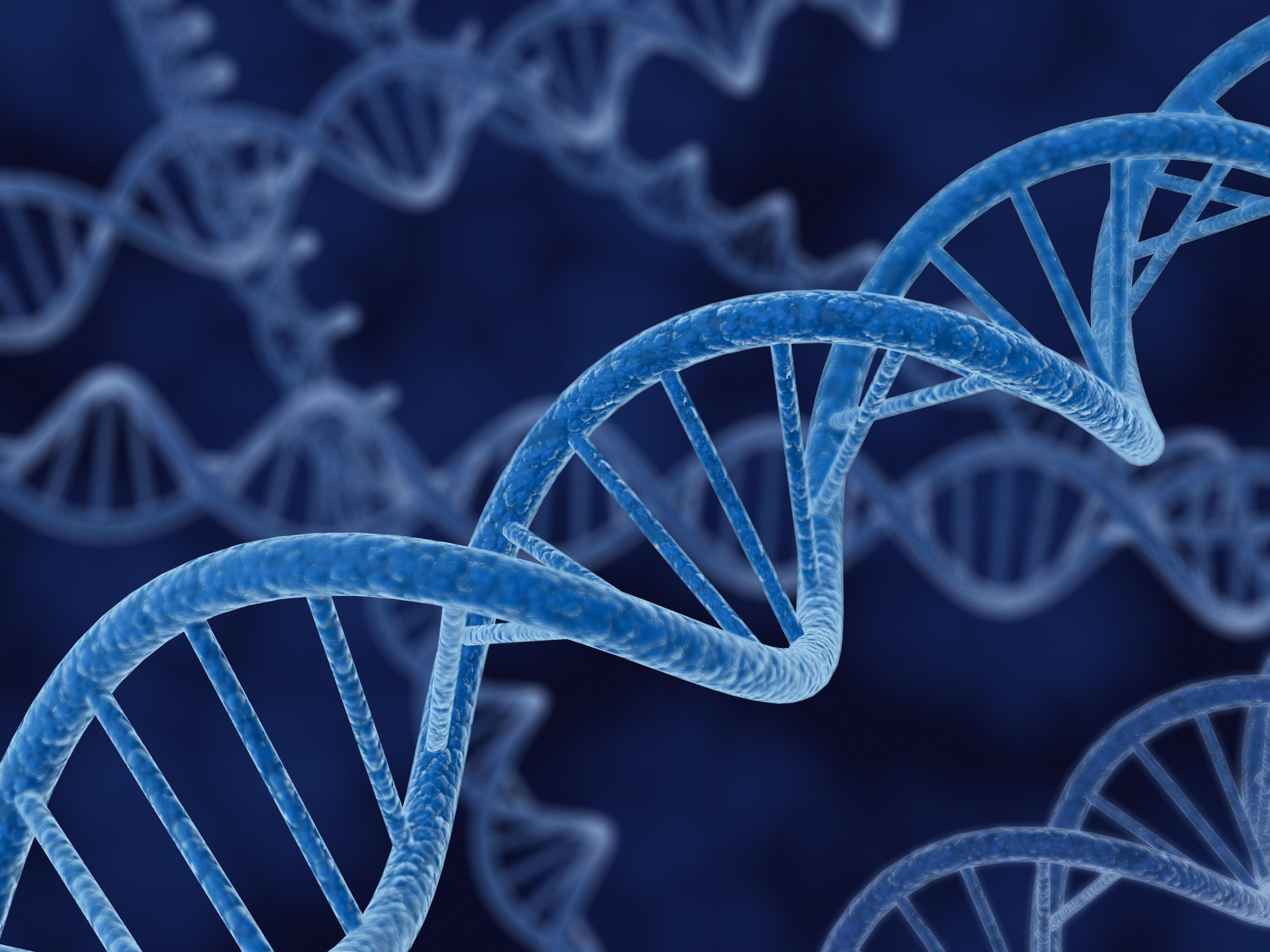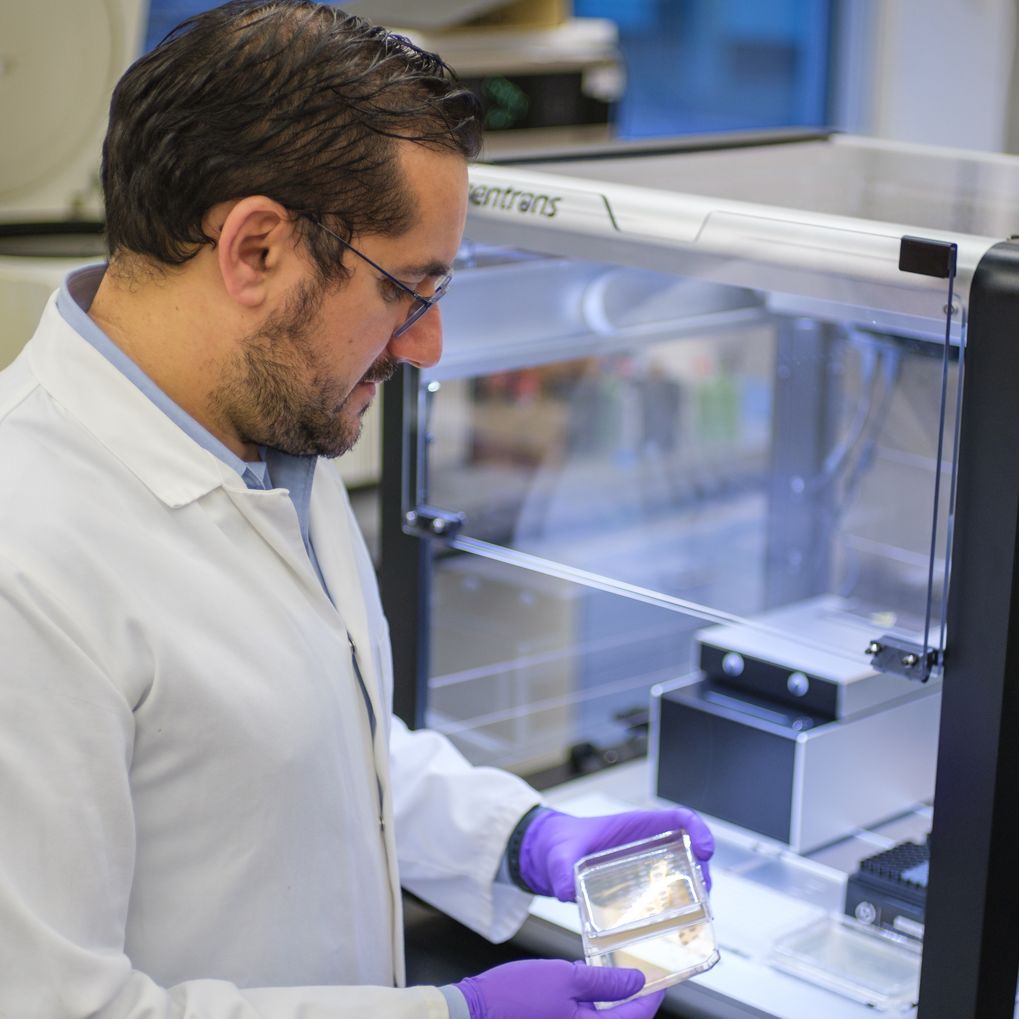Case study: Biomedicine
ZYTHERA
Part of the Engineering Biology Story

LSDs (Lysosomal Storage Disorders) are a group of highly variable genetic disorders that affect as many as one in 5,000 to 10,000 people. Untreated, they cause serious, progressive disease affecting multiple body systems and are often fatal. Treatments for LSDs typically involve life-long weekly or fortnightly intravenous enzyme infusions (to replace defective enzyme activity in the cell). This costs approximately £300,000 per patient per year and as much as £3-6 million per person over their lifetime. Most treatments have significant side effects, particularly immune reactions, which impacts both prognosis and treatment burden. New treatments usually take over a decade to reach the clinic.
ZYTHERA is a spin-out from the Mammalian SynthSys SBRC, using AI to identify new therapeutic enzymes for LSD that are more effective with fewer side effects. The spin-out is a direct result of the research conducted by Professor Giovanni Stracquadanio and Professor Susan Rosser; through the SBRC, ZYTHERA had access to cell engineering expertise and DNA assembly capabilities at the Edinburgh Genome Foundry (EGF), as well as leverage for fundraising efforts. ZYTHERA uses a cell line developed through the SBRC to produce new enzymes and the DNA synthesis process developed by Neochromosome in the US to lower the cost of protein engineering.
ZYTHERA is collaborating with Dr Eve Miller-Hodges from the Scottish Inherited Metabolic Disorders Service to undertake clinical validation with the aim of accelerating the delivery of better therapies for patients as soon as possible.
Professor Stracquadanio and Professor Rosser were also recently granted a £12+ million BBSRC award for a new Engineering Biology Hub on ‘Engineered Genetic Control Systems for Advanced Therapeutics’. Prof Stracquadanio will continue to work on LSD therapies to treat the central nervous system and bones via the hub by combining AI and Engineering Biology.
Using AI is allowing ZYTHERA to develop new enzymes as possible treatments for lysosomal storage diseases. (Credit: ZYTHERA)
Using AI is allowing ZYTHERA to develop new enzymes as possible treatments for lysosomal storage diseases. (Credit: ZYTHERA)
ZYTHERA combine engineering biology techniques with AI to accelerate the development of therapeutics. (Credit: ZYTHERA)
ZYTHERA combine engineering biology techniques with AI to accelerate the development of therapeutics. (Credit: ZYTHERA)
Using AI is allowing ZYTHERA to develop new enzymes as possible treatments for lysosomal storage diseases. (Credit: ZYTHERA)
Using AI is allowing ZYTHERA to develop new enzymes as possible treatments for lysosomal storage diseases. (Credit: ZYTHERA)
ZYTHERA combine engineering biology techniques with AI to accelerate the development of therapeutics. (Credit: ZYTHERA)
ZYTHERA combine engineering biology techniques with AI to accelerate the development of therapeutics. (Credit: ZYTHERA)
LSDs (Lysosomal Storage Disorders) are a group of highly variable genetic disorders that affect as many as one in 5,000 to 10,000 people. Untreated, they cause serious, progressive disease affecting multiple body systems and are often fatal. Treatments for LSDs typically involve life-long weekly or fortnightly intravenous enzyme infusions (to replace defective enzyme activity in the cell). This costs approximately £300,000 per patient per year and as much as £3-6 million per person over their lifetime. Most treatments have significant side effects, particularly immune reactions, which impacts both prognosis and treatment burden. New treatments usually take over a decade to reach the clinic.
ZYTHERA is a spin-out from the Mammalian SynthSys SBRC, using AI to identify new therapeutic enzymes for LSD that are more effective with fewer side effects. The spin-out is a direct result of the research conducted by Professor Giovanni Stracquadanio and Professor Susan Rosser; through the SBRC, ZYTHERA had access to cell engineering expertise and DNA assembly capabilities at the Edinburgh Genome Foundry (EGF), as well as leverage for fundraising efforts. ZYTHERA uses a cell line developed through the SBRC to produce new enzymes and the DNA synthesis process developed by Neochromosome in the US to lower the cost of protein engineering.
ZYTHERA is collaborating with Dr Eve Miller-Hodges from the Scottish Inherited Metabolic Disorders Service to undertake clinical validation with the aim of accelerating the delivery of better therapies for patients as soon as possible.
Professor Stracquadanio and Professor Rosser were also recently granted a £12+ million BBSRC award for a new Engineering Biology Hub on ‘Engineered Genetic Control Systems for Advanced Therapeutics’. Prof Stracquadanio will continue to work on LSD therapies to treat the central nervous system and bones via the hub by combining AI and Engineering Biology.
BBSRC invests to push back the frontiers of biology and deliver a healthy, prosperous and sustainable future.
/www.ukri.org/councils/bbsrc/
Get in touch with us to discuss BBSRC’s research outcomes and impacts or to tell us about your own:
Emma Lambourne
Senior Manager, Impact Evidence
emma.lambourne@bbsrc.ukri.org
Dr Beverley Thomas
Associate Director, Evidence and Evaluation
beverley.thomas@bbsrc.ukri.org
Dr Rosie Ford
Manager, Impact Evidence
rosie.ford@bbsrc.ukri.org
For more information about Engineering Biology contact BBSRC’s Transformative Technologies Team
Eng.Bio@bbsrc.ukri.org





